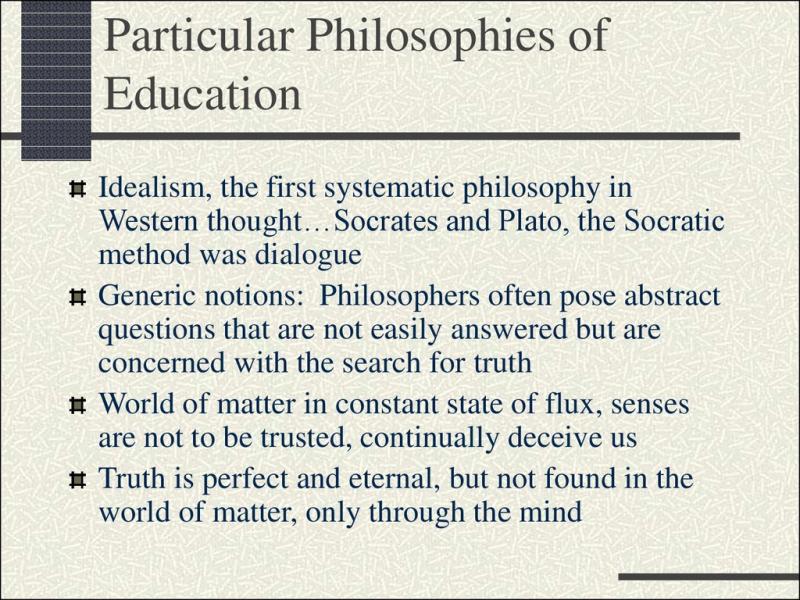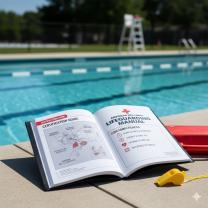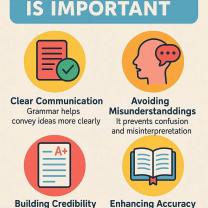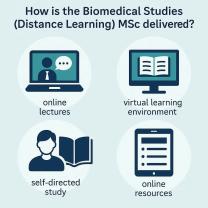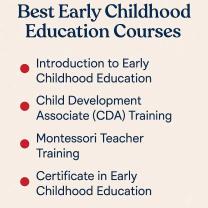What is the philosophy of Education?
The philosophy of education refers to the beliefs, values, and principles that guide and inform educational practices. It addresses fundamental questions about the nature, purpose, and methods of education. Philosophies of education vary widely, and educators often draw on multiple philosophical perspectives to shape their approach to teaching and learning. Here are some foundational principles and key questions associated with the philosophy of education:
Metaphysics of Education:
- Question: What is the nature of reality, and how does it relate to education?
- Principle: Metaphysics explores the fundamental nature of reality and existence. In education, this may involve considering the nature of knowledge, the mind, and the purpose of education in the broader context of existence.
Epistemology of Education:
- Question: What is the nature and source of knowledge, and how is it acquired?
- Principle: Epistemology deals with the nature of knowledge and how we come to know. Educational philosophies often address questions about the role of experience, reason, perception, and authority in the acquisition of knowledge.
Axiology of Education:
- Question: What are the values and principles that guide education?
- Principle: Axiology in education involves the study of values, including ethical principles, and how they inform educational goals and practices. Questions of ethics, morality, and social values are central to this aspect of educational philosophy.
Ontology of Education:
- Question: What is the nature of being or existence, and how does it relate to education?
- Principle: Ontology explores questions about the nature of being and existence. In education, this may involve considering the nature of the learner, the teacher, and the educational environment.
Teleology of Education:
- Question: What is the purpose or goal of education?
- Principle: Teleology focuses on the purpose or end goals. Educational philosophies differ in their views on the ultimate purpose of education, whether it is to prepare individuals for citizenship, personal fulfillment, economic success, or moral development.
Pragmatism:
- Principle: Pragmatism emphasizes practical experience and action as the basis for knowledge and learning. It often advocates for learning through problem-solving, experimentation, and real-world applications.
Idealism:
- Principle: Idealism emphasizes the importance of ideas and the mind. It suggests that reality is based on universal principles, and education should focus on cultivating intellectual and moral virtues.
Realism:
- Principle: Realism asserts the objective existence of an external reality. In education, it emphasizes the importance of teaching students about the real world and preparing them for practical challenges.
Existentialism:
- Principle: Existentialism focuses on individual existence and personal freedom. In education, it may advocate for an emphasis on individual choice, responsibility, and the development of one's authentic self.
Progressivism:
- Principle: Progressivism promotes student-centered learning, emphasizing active participation, problem-solving, and experiential learning. It often aligns with democratic principles and the idea that education should prepare students for active citizenship.
These principles represent just a few of the philosophical perspectives that educators might draw upon when shaping their approach to teaching and learning. Educational philosophies often blend elements from multiple perspectives, and individual educators may develop their unique philosophy based on their experiences, values, and beliefs.
What is the philosophy of education, and how is it defined?
The philosophy of education is the branch of philosophy that examines the nature, aims, and problems of education. It is concerned with the foundational questions of education, such as:
- What is the purpose of education?
- What should be taught and learned?
- How should education be delivered?
- Who should have access to education?
There is no single definition of the philosophy of education, as it is a broad and complex field. However, some common themes that emerge from the philosophy of education include:
- The importance of critical thinking and problem-solving
- The importance of creativity and imagination
- The importance of social justice and equity
- The importance of the learner's experience
How do educational philosophers conceptualize the purpose and principles of education?
Educational philosophers conceptualize the purpose and principles of education in a variety of ways. Some of the most common philosophical perspectives on education include:
- Essentialism: Essentialists believe that the purpose of education is to transmit essential knowledge and skills to students. They emphasize the importance of academic rigor and standards.
- Perennialism: Perennialists believe that the purpose of education is to prepare students for a meaningful life in society. They emphasize the importance of studying the classics and developing moral character.
- Progressivism: Progressivists believe that the purpose of education is to help students develop their full potential. They emphasize the importance of experiential learning and critical thinking.
- Constructivism: Constructivists believe that students learn best by constructing their own knowledge. They emphasize the importance of active learning and collaboration.
- Critical pedagogy: Critical pedagogues believe that the purpose of education is to empower students to understand and challenge social injustice. They emphasize the importance of critical thinking and social action.
Are there different philosophical perspectives on education?
Yes, there are many different philosophical perspectives on education. The perspectives listed above are just a few examples. Other philosophical perspectives on education include:
- Feminist pedagogy: Feminist pedagogy emphasizes the importance of challenging gender stereotypes and promoting gender equality in the classroom.
- Multicultural education: Multicultural education emphasizes the importance of teaching students about different cultures and perspectives.
- Postmodern pedagogy: Postmodern pedagogy challenges traditional notions of knowledge and authority in the classroom.
The different philosophical perspectives on education reflect the diversity of beliefs about what education is and what it should achieve. There is no one right philosophical perspective on education. The best philosophical perspective for a particular teacher or school will depend on the specific needs and goals of the community.
It is important to note that the philosophy of education is not a static field. Educational philosophers are constantly developing new theories and perspectives on education. As society changes, so too does the philosophy of education.
